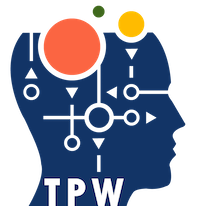Job Satisfaction refers to the level of contentedness people feel with regards to their job. It is an umbrella term that includes aspects like self-motivation, job security, and comfortable work-life balance, amongst others. Job satisfaction is not just a desirable quality for employees, but for organizations as well. For an employer, an employee’s work satisfaction is a critical factor in …
Team-Based Rewards in the Workplace: How effective are they?
We are all aware of how rewards can motivate people to do better in their work. This follows from the theory of operant conditioning developed by BF skinner, which sees rewards and punishments as a way of influencing behavior. Even in the workplace, rewards in the form of bonuses, promotions, or simply praises, can go a long way in motivating …
5 Technological Trends That is Changing the Workplace
The workplace is changing dramatically. Workers today are more likely to be sitting behind a desk staring at a computer screen than they are to be engaging in physical labor. As a result, the way we work and interact with one another is rapidly evolving. From the way that people communicate to how they do their jobs, companies are finding …
5 ways to be More Assertive
Assertiveness is a life skill that involves being able to express your thoughts and feelings in a confident, polite, and reasonable way. It is important for people to be assertive because it helps them create healthy relationships with other people. It also helps people to take care of themselves the best way they can. It is the opposite of being …
5 ways to Develop Your Cognitive Flexibility
Several studies show that cognitive flexibility has numerous benefits for employees in the workplace. In today’s workplace, the ability to juggle between tasks, being able to adapt quickly to changes without getting stressed, and being able to come up with creative and innovative ideas are crucial. Sung, et. al., in 2018, conducted a study on Korean Air Force pilots. The …
Empowering Leadership: The Emerging Leadership Trend of the 21st Century
Empowering leadership is a process whereby leaders create a supportive environment and delegate subordinates’ power and autonomy in their work and decision-making (Zhu et al., 2019). There are various ways to do this. Empowering leaders delegate responsibility and authority to make decisions to the employees. It encourages the employees to come up with and try new ideas. Sharing information and …
- Page 1 of 2
- 1
- 2






